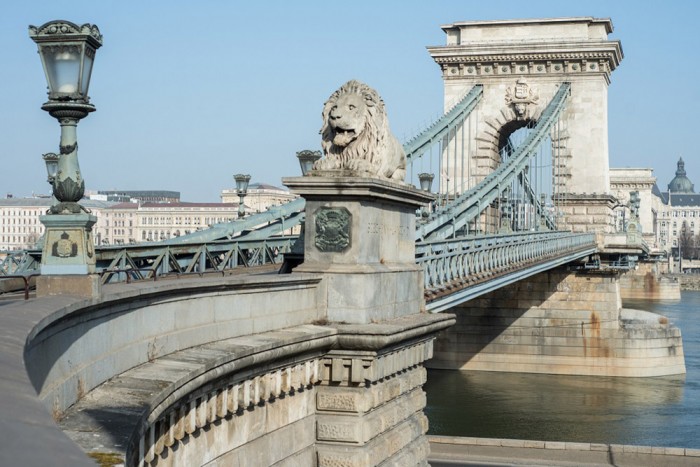The left-wing city administration set its number one objective, the reduction of traffic in the city center – thereby making the Lánchíd car-free – in such a way that in the last four years, every development in Budapest that significantly contributes to this has been blocked.
The "most important" project of Gergely Karácsony's first mayoral term, the renovation of the Széchenyi Chain Bridge, was more expensive, with much less technical content, but was completed ahead of time: on Friday, August 4, i.e. today, the sidewalks running on both sides of the Chain Bridge will be opened to pedestrians, and this is the bridge's structural and marks the end of its monumental reconstruction.
The well-known Chain Bridge was renovated by the Budapest Metropolitan Municipality led by Karácsony for HUF 5 billion more expensively, because the winner of the public procurement procedure, A-Híd Zrt., was able to complete the work for a net price of HUF 18.8 billion and a gross price of HUF 26.75 billion - all this during the mayorship of István Tarlós 21 would have cost .8 billion.
By the way, the previous, right-wing city administration did not only count on the reconstruction of the bridge, but also on the renovation of the underpass on Széchenyi István tér, for which an additional 13.5 billion would have been allocated.
However, this did not happen, and the current, left-wing city manager still tried to pass the political responsibility on to his predecessor, peppered with slips.
"The past 9 years were not enough for Fidesz to renew the Chain Bridge - but now we will renew it," the left-wing politician wrote on his social media page on December 17, 2020. - In the public procurement tendered by the previous city administration, which was later rejected by them, the renovation of the bridge would have cost about 35 billion, the cheapest offer comparable to this in the public procurement tendered by the BKK is just under 27 billion."
In other words, the thirty-five billion offer mentioned by Karácsony also calculated the renovation of the Széchenyi tér underpass (he accidentally omitted this from his post); and this, the previous tender, was not rejected by the Tarlóses (as he pointed out directly in his post), but by the Karácsony ones. Because even though Tarlós initiated a price review based on the offers received on September 23, 2019, it was concluded before Christmas. The Metropolitan Municipality declared the public procurement procedure to be ineffective in such a way that the BKK recommended the opposite.
But the mud-slinging is far from over here, as the government's promised six-billion dollar subsidy has not arrived - and the mayor is trying to blame the cabinet on all possible fronts. However, the government agreed with the capital that it would support the full reconstruction of the Chain Bridge, and there was an additional condition that "the total or partial restriction of motor vehicle traffic on this road section should not exceed the duration of 18 months".
This was not fulfilled either, and in fact, it cannot be fulfilled anymore, since the bridge will be car-free, which means that in addition to pedestrians, only taxi drivers, buses, motorcyclists and cyclists will still be able to use the Chain Bridge.
(…)
The Széchenyi Chain Bridge, which was completed before the 150th birthday of the capital city of Budapest, generated not only political but also policy debates.
The left-wing city administration set its number one objective, the reduction of traffic in the city center – thereby making the Lánchíd car-free – in such a way that in the last four years, every development in Budapest that significantly contributes to this has been blocked.
What would these developments have been? The Southern Circular Railway, the Galvani Bridge and the Aquincum Bridge. The fact that Gergely Karácsony started designing the concepts for the surroundings of the Lánchíd and the layout of the surface of the 3rd subway, after they had completed the renovation of the works of art, does not show too many political ideas either.
And although the traffic calming plans for the Lánchíd and its surroundings are in some respects commendable, the capital city has no solution for the resulting traffic. If there were alternative initiatives, they were mowed down by the city administration.
However, the reduction of traffic in the city center, thus making Lánchíd car-free, will also occur when new bridges in Budapest are due for renovation.
Because Karácsony calculates the car exemption for a state when all the other Danube bridges in Budapest are in operation. However, after the Chain Bridge, the Petőfi and then the Árpád Bridge must be renovated. So they have to be closed for many years in a row. "And then eliminating the capacity of the Lánchíd will lead to traffic chaos. Placing the responsibility for this on lay people, including minor children, is ridiculous. This is not democracy, but dilettantism, which is served as a gift to unsuspecting voters," noted István Tarlós in an interview.












